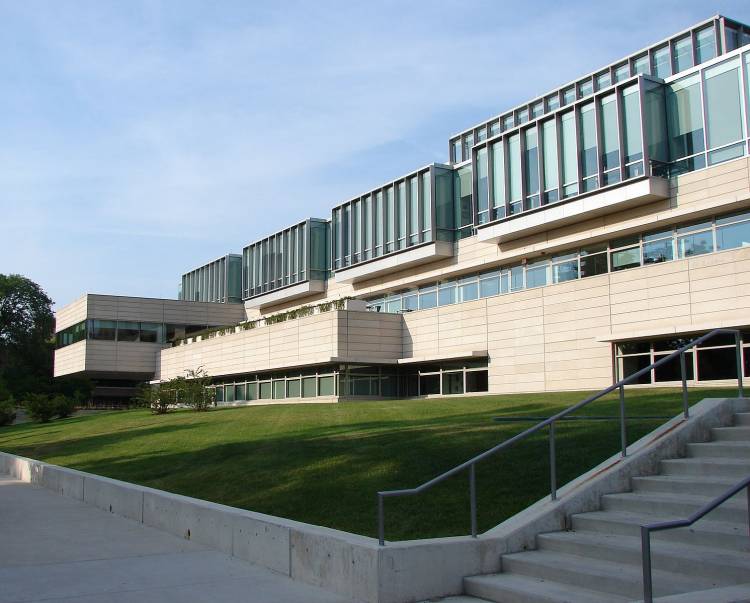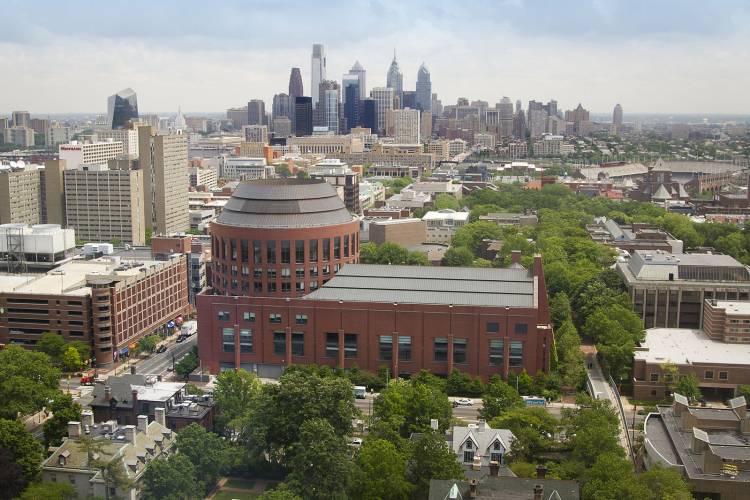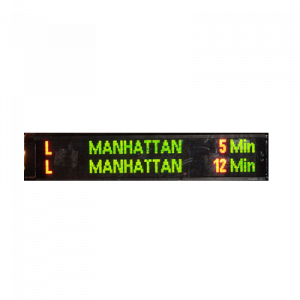Should you choose University of Pennsylvania’s Wharton School or University of Chicago Booth School of Business to get your MBA?
Wharton and Booth are two of the world’s best business schools, on many fronts. Both programs consistently rank in the top seven worldwide, the quality of education and cost of attendance are comparable. Both schools are located in a major city with vast business resources and cultural attractions.
Historically, the big difference between them has been perception. Admissions consultants say the Wharton brand has more lustre: yield rates, applicant volume, and average starting salary are all relatively higher than they are at Booth.
“In recent years, the trifecta of HBS, GSB and Wharton (H/S/W) is a very common round one focus for the elite candidates,” says Stacy Blackman of Stacy Blackman Consulting. “A few years ago, the elite candidates were only applying to HBS and GSB. Wharton has found its way into the trifecta.”
But fit is everything when it comes to choosing a business school and both the culture and career destinations of Wharton and Booth students vary, sometimes widely.
Wharton vs Booth: MBA admissions requirements, selectivity and class profiles
Both of these highly respected business schools require the same standard application elements: CV, undergraduate transcript, short-answer questions, and a GMAT or GRE score. The more subjective admissions requirements vary, however.
Booth’s application gives candidates more freedom to be themselves, whereas Wharton takes a more structured approach. For example, Booth offers more freedom of expression in its two required essays, with no maximum wordcount and one question asking about personal interests and passions.
Wharton invites candidates to take part in group discussions, instead of the more traditional one-on-one interviews at Booth.
 Booth takes a personal approach to its application process, to ensure its candidates are committed. “Show up [be committed and engage with the school], make yourself known. Showing up means a lot to Booth, and they track the frequency in their system,” says a former Booth admissions officer at Stacy Blackman Consulting.
Booth takes a personal approach to its application process, to ensure its candidates are committed. “Show up [be committed and engage with the school], make yourself known. Showing up means a lot to Booth, and they track the frequency in their system,” says a former Booth admissions officer at Stacy Blackman Consulting.
Wharton is more selective than Booth, despite having a much larger applicant pool (6,692 vs. 4,674 this year) and class size (863 vs. 562). Wharton’s acceptance rate is 19.2 percent, compared with Booth’s 20.8 percent. An offer from Wharton appears to be more compelling to admits, with a yield of 67.2 percent whereas Chicago’s is 60 percent.
Tellingly, almost every applicant who is accepted to both will accept Wharton, according to the data provided by Stacy Blackman Consulting.
Admits at both schools are impressive and similar. They each have an average 3.6 GPA and an average 730 GMAT. However, the minimum GMAT score is lower at Wharton (530) than at Booth (620).
The upside of the relative admit flexibility by Booth (compared to Wharton) is that the program tends to attract a more collaborative student class.
“If quality is defined as a collaborative culture, Booth likely wins. If quality is defined as prestige of a student’s past work experience, Wharton likely wins,” says Esther Magna, principal at Stacy Blackman Consulting.
Wharton tends to attract a more competitive applicant pool, admissions consultants say, so the MBA experience will reflect this intensity.
“Wharton is a hyper-social environment. From day one, there is constant activity and a never-ending social calendar that extroverts will love, introverts with strong social skills will navigate successfully, and introverts without social graces would find stifling,” says a former Wharton admissions officer. “The group interview is definitely a primer for the energy prospective students will step into on campus from day one.”
Wharton vs. Booth: MBA program comparison
Both schools have rigorous curriculums that are known to be quant-heavy, but there is plenty of latitude in learning choices. At Wharton, MBA students take six required courses in subjects such as leadership and statistics. They choose from one of 19 majors, ranging from business analytics to multinational management.
At Booth, MBA students have even greater flexibility in choosing their curriculum. There is only one required course, on leadership. The rest of the program consists of foundation courses and electives.
Some 82 percent of students and alumni surveyed by GMAT Club, the largest portion, said Booth’s curriculum and professors were its core strengths. In comparison, Wharton’s top strength was its brand, as cited by 93 percent of students who were surveyed.
Wharton vs. Booth: MBA career outcomes
Both schools offer excellent career outcomes — an identical 97.1 percent of the MBA cohorts report job offers shortly after graduation, according to each school’s most recent MBA career report. Wharton grads receive somewhat higher starting annual salaries ($130,000) than their counterparts from Booth ($125,000).
 There is a perception that the pair are “finance schools”. That impression is supported by the US News 2019 rankings by specialty, as well as the schools’ placements: MBAs from both Wharton and Booth have landed jobs in firms like Citigroup, Bank of America Merrill Lynch and JPMorgan Chase, among other financial services firms.
There is a perception that the pair are “finance schools”. That impression is supported by the US News 2019 rankings by specialty, as well as the schools’ placements: MBAs from both Wharton and Booth have landed jobs in firms like Citigroup, Bank of America Merrill Lynch and JPMorgan Chase, among other financial services firms.
But both schools have diversified away from the sector in recent years.
They are big hubs for the Big Three management consulting firms, for example, and many students also go to technology companies like Amazon and Google.
Both schools are aiming to capture an identity that supports innovation and entrepreneurship. For Wharton, this is reflected in the offer of a full semester in San Francisco, a startup hotspot.
“Wharton’s dean, Geoffrey Garrett is really big on the idea of innovation and thinks that Wharton will have to adapt to the disappearance of many current industries and ideas. That idea aligns with sending more and more students through the management consulting funnel, where they can gain broad expertise in several fields without having their skill-sets become irrelevant,” says a former Wharton admissions team member.
Booth has the New Venture Challenge, a year-long program that carries MBA students through every step of creating a successful startup. Success stories like Grubhub and Braintree have come out of that program.
For applicants considering these schools, another significant point of difference is the size and distribution of alumni from each school.
“Wharton offers its graduates a network consisting of 98,000 graduates based in 153 countries, whereas Chicago Booth has 52,000 alumni in 120 countries,” says Alex Min, CEO of The MBA Exchange admissions firm. “Alumni interest and support can be a significant benefit for current students and recent grads when seeking to advance their careers.”
The bottom line: in comparing these two revered business schools, most MBA applicants simply cannot make a bad choice, Min says.
Image credits:
- Chicago Booth: Karla Kaulfuss / CC BY 2.0
- Wharton School: WestCoastivieS / Public Domain










